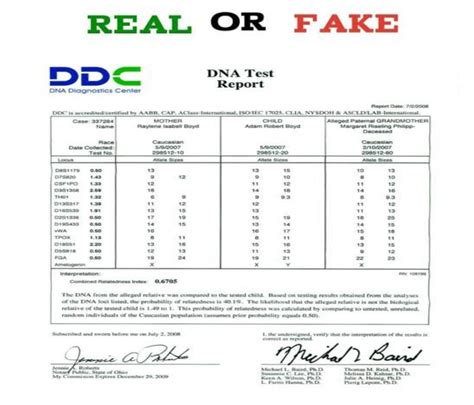commercial dna tests are fake ,Here's Why Many DNA Test Startups Are Basically Scams, Just ,commercial dna tests are fake, In an era where technology has made DNA testing more accessible than ever, a troubling trend has emerged: the proliferation of fake or misleading DNA tests. These products . Chanel tweed is an iconic staple and tweed flap bags truly applaud the heritage, feminist roots, and vision that its founder Coco Chanel embraced and embodied throughout her career. Chanel tweed bags come in many notable patterns, such as metallic, herringbone, houndstooth, and more. So it really comes down to what you find attractive and what .

In recent years, DNA testing kits have exploded in popularity, offering consumers a simple way to discover their ancestral roots, health risks, and even genetic predispositions. With companies like Ancestry.com, 23andMe, and others marketing their services as accurate and scientifically validated, it’s easy to assume these results are reliable. However, the truth may surprise you. As someone who sent off nine different DNA samples to three separate DNA testing companies under various fake names, I can confidently say that the results were far from consistent or meaningful. In fact, they were downright nonsensical.
This article will delve into the hidden risks of consumer genetic tests, the staggering inaccuracies that plague them, and why the commercialization of DNA testing may not be as legitimate as it seems.
I Took 9 Different DNA Tests and Here's What I Found
To test the legitimacy of these commercial DNA tests, I decided to submit nine separate DNA samples to three of the biggest names in the direct-to-consumer genetic testing market. I used different names for each sample to see how the companies would treat identical genetic material from a single person. The results were laughable.
One sample, for example, came back claiming I was “98% European,” with a small fraction of Native American ancestry—despite having no known connection to those regions. Another report suggested that I had some distant African ancestry, a genetic link that was completely unfounded. Meanwhile, yet another sample was classified as 70% Scandinavian. The inconsistency between these results left me bewildered, especially considering that all the samples came from the same person: me.
This experiment highlights a disturbing trend within the commercial DNA testing industry. The results are often inconsistent, inaccurate, and seem to have little relation to the actual genetic material being tested. But the question remains: why are these companies getting away with providing such unreliable results?
Up to 40 Percent of DNA Results from Consumer Genetic Tests Are Inaccurate
It isn’t just my personal experience that raises red flags. A growing body of evidence shows that up to 40 percent of results from consumer genetic testing companies are inaccurate or misleading. A study by *The Scientist* found that inaccuracies in DNA testing results are not rare occurrences, but rather a common problem. In fact, some researchers suggest that DNA testing kits are more prone to error than they are to providing useful or reliable information.
In particular, the problems arise in areas like ancestry estimates, where genetic samples are often misinterpreted or assigned to incorrect geographic regions. Even worse, some companies rely on small, outdated, or skewed databases that fail to provide a representative view of global genetic diversity. When consumers receive results based on flawed databases, they are led to believe that they have genetic connections to populations they may have no actual relation to. This is especially problematic when individuals take these results to make important life decisions, such as determining their health risks or learning about family history.
Moreover, many of these companies offer “health-related” genetic information that often lacks clinical validity. These results are typically based on common genetic variants, but the link between these variants and actual health outcomes is not always clear or conclusive. As a result, many consumers may be alarmed by a “potential risk” for certain health conditions, only to later learn that such risks were exaggerated or even meaningless.
The Hidden Risks of DNA Testing Kits
Beyond the inaccuracies of DNA tests, there are numerous hidden risks associated with consumer genetic testing. When people submit their DNA for analysis, they are often unaware of the long-term implications, both legal and personal, of sharing such sensitive data.
One major risk is the potential for data breaches. As more and more consumers submit their genetic data to testing companies, the risk of that data being hacked or sold increases exponentially. Several high-profile breaches have already occurred in the industry, leaving millions of consumers vulnerable. Your genetic information, once in the hands of these companies, could be sold to third-party organizations without your full consent. This could have serious consequences, ranging from identity theft to unauthorized marketing or even discrimination by employers or insurers based on your genetic traits.
Another hidden danger lies in the potential for misinformation and misinterpretation of results. Many consumers may not fully understand the limitations of the information provided to them, leading to unnecessary anxiety or confusion. For instance, a health report may indicate a genetic predisposition to a certain condition, but it cannot predict with certainty whether that condition will manifest. A person might adopt unhealthy habits or change their lifestyle based on these misleading reports, thinking they are at greater risk than they really are.

commercial dna tests are fake Headwear of the Coco Neige 2024/25 Collection collection: Earmuffs, shearling lambskin, beige on the CHANEL official website.
commercial dna tests are fake - Here's Why Many DNA Test Startups Are Basically Scams, Just